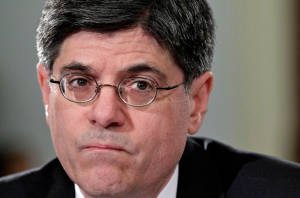“Ballistic missiles, support for terrorism, destabilizing activities in the region, that’s not the nuclear deal,” a US security adviser said amid reports that Obama may ease financial restrictions on Iran.
The Obama administration is considering easing financial restrictions that prohibit U.S. dollars from being used in transactions with Iran, U.S. officials said. Angry lawmakers countered that Tehran would be getting more than it deserves from last year’s nuclear accord.
While no final decision has been made, officials told The Associated Press that the Treasury Department has prepared a general license permitting offshore financial institutions to access dollars for foreign currency trades in support of legitimate business with Iran, a practice that is currently illegal.
Several restrictions would apply, but the change could prove significant for Iran’s sanctions-battered economy. It also would be highly contentious in the United States, where Republican and some Democratic lawmakers say the administration promised to maintain a strict ban on dollars along with other non-nuclear penalties on Iran after last July’s seven-nation nuclear agreement.
“These reports are deeply concerning, to say the least,” House Speaker Paul Ryan said Thursday in a statement. “As Iran continues to undermine the spirit of its nuclear agreement with illicit ballistic missile tests, the Obama administration is going out of its way to help Tehran reopen for business. The president should abandon this idea.”

(Shutterstock)
The nuclear pact provided Iran with billions of dollars in sanctions relief for curtailing programs that could lead to nuclear weapons. But the Iranians say they haven’t benefited to the extent envisioned under the deal because of other U.S. measures linked to human rights, terrorism and missile development concerns.
Because of its status as the world’s dominant currency, the dollar often is used in money conversions. For example: If the Iranians want to sell oil to India and be paid in euros instead of rupees, so they could more easily purchase European goods, the process commonly starts with the rupees being converted into dollars.
American sanctions block Iran from exchanging the money on its own. And Asian and European banks are wary because U.S. regulators have levied billions of dollars in fines in recent years and threatened transgressors with a cutoff from the far more lucrative American market. Using dollars to make even a rupees-to-euros conversion, following that example, would still involve the money entering the U.S. financial system, if only momentarily.
The new guidance would allow dollars to be used in currency exchanges as long as no Iranian banks are involved, according to the officials, who weren’t authorized to speak publicly on the matter and demanded anonymity. No Iranian rials can enter into the transaction, and the payment wouldn’t be able to start or end with American dollars. The ban would still apply if the final payment is intended for an Iranian individual or business on a U.S. sanctions blacklist.
‘We Do Believe They [Iran] Are Complying’
Top administration officials have only hinted at providing Iran additional help.
“We do believe that they are complying” with the nuclear accord, Ben Rhodes, President Barack Obama’s deputy national security adviser, told reporters Thursday, despite several reports indicating Iran has violated the deal on more than one occasion. “Ballistic missiles, support for terrorism, destabilizing activities in the region, that’s not the nuclear deal,” Rhodes said. “It’s a separate set of issues in which we have the ability to respond.”
In March, Iran reportedly fired two ballistic missiles at a target some 1,400 kilometers (870 miles) away, with the words “Israel must be wiped out” written on them.

Treasury Secretary Jack Lew: “Since Iran has kept its end of the deal, it is our responsibility to uphold ours, in both letter and spirit.” (AP/Scott Applewhite)
In a speech Wednesday, Treasury Secretary Jack Lew said, “Since Iran has kept its end of the deal, it is our responsibility to uphold ours, in both letter and spirit.”
Lew warned that “sanctions overreach” risked driving business away from the United States, hurting the U.S. and global economy and empowering economic rivals.
“If foreign jurisdictions and companies feel that we will deploy sanctions without sufficient justification or for inappropriate reasons — secondary sanctions, in particular — we should not be surprised if they look for ways to avoid doing business in the United States or in U.S. dollars,” Lew told the Carnegie Endowment for International Peace.
The 2012 National Defense Authorization Act instructs the president to “block and prohibit” all Iranian assets if they “come within the United States, or are or come within the possession or control of a United States person.”
In a letter to the president Thursday, Rep. Brad Sherman, a Democrat, said allowing dollar transactions for business with Iran “is clearly not required” by the nuclear deal and would only lead the Iranians to make further demands.
Rep. Steny Hoyer, the No. 2-ranked House Democrat, added: “I do not support granting Iran any new relief without a corresponding concession. We lose leverage otherwise, and Iran receives something for free.”
Is Obama Changing the Rules?
In a separate letter, Republican Sens. Marco Rubio and Mark Kirk cited testimony last year by Treasury Department’s sanctions chief, Adam Szubin, who told lawmakers Iran wouldn’t be allowed “even to execute a dollarized transaction where a split second’s worth of business is done in a New York clearing bank.”
U.S. officials said the change wouldn’t break that pledge because Iran still wouldn’t have access to the American financial system. If an Indian bank exchanges the money with a Hong Kong clearinghouse and the money is eventually converted to non-U.S. currency, no Iranian institution ends up touching any dollars. And no Iranian rials would be entering the United States.
Both concerns are rooted in the Obama administration’s designation of Iran in 2011 as a jurisdiction of “primary money laundering concern.” Critics of Obama’s outreach to Iran say softening the rules would provide Iran a toehold toward re-entering the global financial system, helping it raise more cash for U.N.-banned ballistic missile work or supporting U.S.-designated terrorist groups.
By: AP and United with Israel Staff
Send Passover Packages to Needy Israeli Soldiers - Bring Them Joy!
We are honored to thank the young men and women of the IDF who risk their lives every day to protect the citizens of Israel. Since October 7th, soldiers have been on the battlefield for months - many are hoping to come home for Passover.
Join us in sending Passover food packages (and personal notes) to Israeli soldiers and their families.
Many soldiers spend the Passover holiday with needy families back home. The soldiers greatly appreciate your love and concern. Bring them Passover joy!
CLICK HERE TO SEND YOUR PACKAGE AND NOTE TO ISRAELI SOLDIERS!




